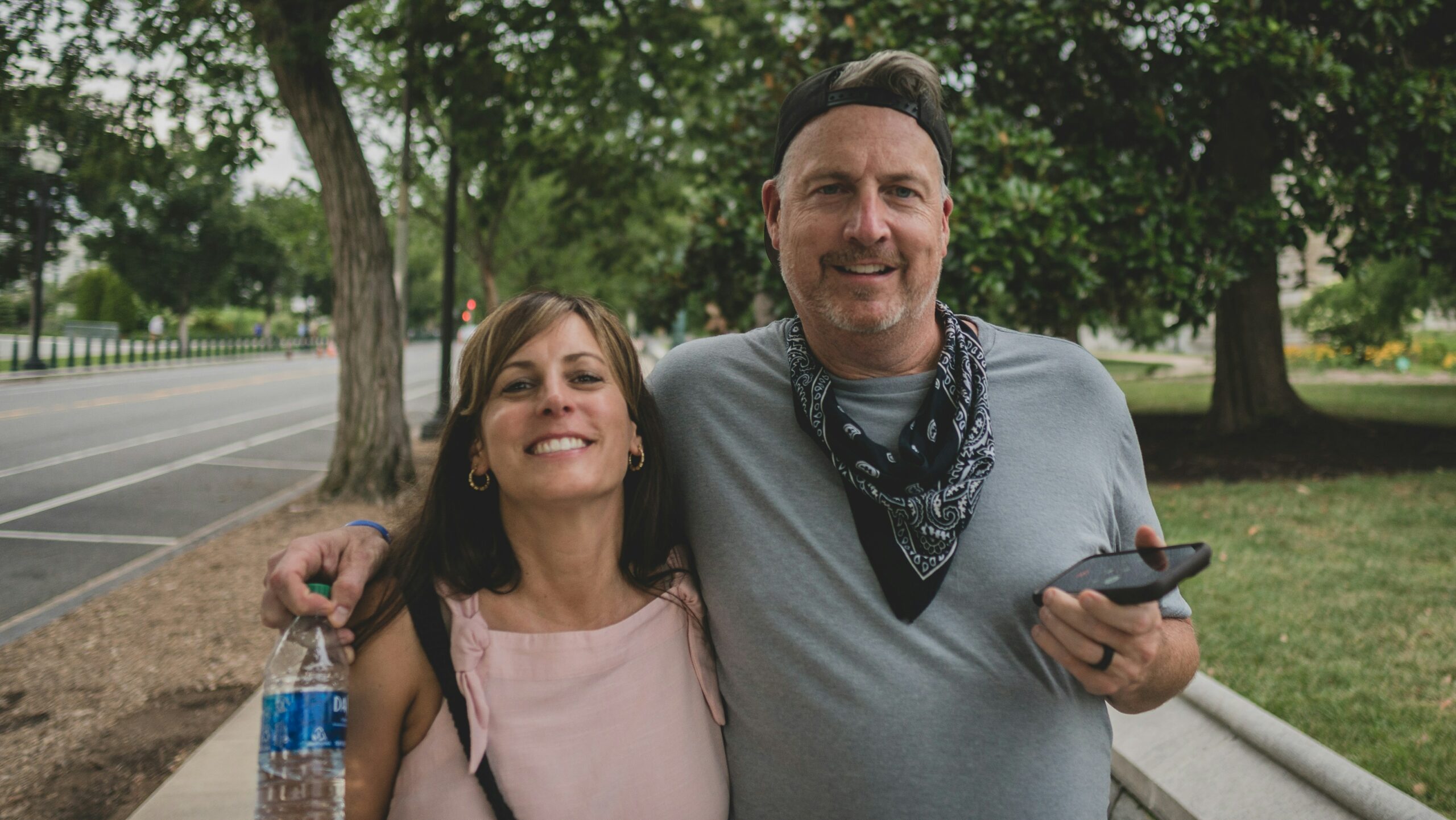Virtual Intensive Outpatient Program for Teens
A Mental health crisis with a teenager can be terrifying. At Antelope Recovery, we understand what you’re going through and are here to help get your family back on track. Our Virtual Intensive Outpatient Program for teens in Colorado is more than just therapy; it’s a lifeline for families in need.


Bridging Gaps With Virtual Intensive Care for Your Teen
Embracing the benefits of a virtual platform, our IOP is typically 4-12 weeks and is designed to support teens grappling with various life challenges without the need for a residential program. Through online interactions, we provide flexibility, accessibility, and an environment that encourages real-life practice of therapeutic skills. Whether dealing with school failure, substance abuse, trauma, or other complex issues, our virtual IOP is here to transform your teen’s life and provide support to your family.
Each week of our virtual IOP is rooted in the following four pillars:
- Individual and Family Therapy: Deepening self-awareness and trust through weekly sessions.
- Education and Skill-Building: Weekly groups for parents and teens focusing on recovery.
- Ecology of Care Tools: Expanding teens’ worlds to reduce isolation and enhance connection.
- Group Therapy: Fostering connections and community to combat loneliness in teens.
Inside Our Virtual IOP for Teens in Colorado
Comprehensive Assessments
We conduct detailed assessments of your teen’s current struggles to understand their unique needs, allowing us to tailor an effective recovery approach.
Health Coordination & Case Management
Our care coordinators and nurses work together to manage your teen’s overall health and wellness to meet their recovery goals.
Family Engagement & Parental Support
We incorporate family therapy sessions, and parents are enrolled in our parenting program and weekly parenting process groups.
24/7 Support & Peer Mentorship
If there’s an emergency, our team is here for you. And our peer mentors offer one-on-one support for your child.
Alumni Planning & Future Success
Graduation is the start of a new chapter. Through alumni and aftercare planning, we equip your teen with the confidence and tools needed for a bright future.
Digital
Dashboard
Our user-friendly client dashboard keeps all billing, scheduling, and relevant information at your fingertips.
Sample Weekly Schedule
Monday
1:1 Therapy
4:30 – 5:30 PM
Learn More >1:1 Therapy
4:30 – 5:30 PM
One-on-one psychotherapy with your Antelope therapist to go deeper into personal challenges in a focused way. CBT, Motivational Interviewing, EMDR and other evidence-based practices are utilized to assist in creating change. In these sessions, you will discuss your personal challenges, thoughts, and feelings in a confidential setting. Individual therapy is a safe space to explore issues, build coping skills, and work towards your mental health goals.
Social-Emotional Group
6 – 7 PM
Learn More >Social-Emotional Group
6 – 7 PM
Social-Emotional, or Antelope, Groups are focused on social-emotional skills. We consider it the “glue” of each teen’s treatment plan. In Antelope Groups, we celebrate program graduations, build relationship skills, develop a sense of belonging, and build self-worth. Loneliness is both a cause and consequence of mental illness, and this group is specifically built to address it. This is a required group.
Tuesday
Family Therapy
4:30 – 6 PM
Learn More >Family Therapy
4:30 – 6 PM
Family therapy including your teen, their Antelope therapist, and family members. By focusing on communication, conflict resolution, and relationship building within the family unit, both the recovery of your teen and the health of your family is greatly supported. This is an essential and required part of the Antelope IOP Program.
Wednesday
Mindfulness Group
4:30 – 5:30 PM
Learn More >Mindfulness Group
4:30 – 5:30 PM
Mindfulness Groups are focused on building numerous mindfulness related skills, such as Attention, Awareness, and Embodiment. Building these skills helps teens with impulse control, emotional awareness, and stress management. This is a required group.
Caseworker Session
6 – 7 PM
Learn More >Caseworker Session
6 – 7 PM
Sessions with your caseworker are focused on access and utilization of resources outside of Antelope. Your caseworker will help with issues involving school, courts, finding sports teams or NA meetings, and more. They will act as both a mentor and advisor, and make sure your teen and family have everything you need for recovery.
Thursday
Social-Emotional Group
6:30 – 7:30 PM
Learn More >Social-Emotional Group
6:30 – 7:30 PM
Social-Emotional, or Antelope, Groups are focused on social-emotional skills. We consider it the “glue” of each teen’s treatment plan. In Antelope Groups, we celebrate program graduations, build relationship skills, develop a sense of belonging, and build self-worth. Loneliness is both a cause and consequence of mental illness, and this group is specifically built to address it. This is a required group.
Friday
1:1 Therapy
4:30 – 5:30 PM
Learn More >1:1 Therapy
4:30 – 5:30 PM
One-on-one psychotherapy with your Antelope therapist to go deeper into personal challenges in a focused way. CBT, Motivational Interviewing, EMDR and other evidence-based practices are utilized to assist in creating change. In these sessions, you will discuss your personal challenges, thoughts, and feelings in a confidential setting. Individual therapy is a safe space to explore issues, build coping skills, and work towards your mental health goals.
Invest in the Best Care for Your Teen

Personalized Care
We customize your teenager’s treatment plan and weekly schedule to ensure they are on the most effective path to recovery.

Home-Based Recovery
Our virtual IOP allows teens to practice therapeutic skills in the comfort of their own homes, integrating healing into their daily lives.

Experienced Providers
Our team brings years of expertise and understanding to every therapy session or group, ensuring your teen receives top-tier care.

Continuous Improvement
We’re pioneers in the field of teen mental health, using data to drive innovation and enhance services for our clients.
Frequently Asked Questions
How is the program personalized to fit my teen’s specific needs and schedule?
We believe that customized care is essential to effective treatment. Every plan is unique, and the care can range from twenty hours a week to just three, depending on your teen’s needs and schedule. We continually work with you and your teen to determine the most effective path forward, adjusting the schedule, number of hours, and approach as needed to maintain efficacy. Our personalized approach ensures that each teen’s individual journey is fully supported.
What is the cost of the virtual IOP for teens?
The cost of our Teen Intensive Outpatient Program (IOP) at Antelope Recovery is tailored to the individual needs and circumstances of each teen and their family, with no fixed cost for the program. The variability in scheduling—ranging from three days a week for ten hours to five days a week for five hours—necessitates a personalized pricing approach. Each of our appointment types is priced individually, not only to facilitate insurance reimbursement but also to maintain affordability. The rates for our services vary from $50 to $200 per hour, depending on factors such as the facilitator’s expertise, the number of professionals involved, and the specific objectives of the session.
Our program offers more than 20 unique appointment types, which may be scheduled on a weekly, biweekly, or monthly basis, tailored to your teen’s specific requirements. This flexibility ensures that care is accurately aligned with the teen’s acuity, diagnosis, and overall needs. Typically, the IOP duration ranges from 4-12 weeks, based on the progress and needs of your teen, with a recommendation for ongoing outpatient services (OP) that provide 1-3 hours of care per week for three months post-IOP to support continued recovery.
To support families in accessing our services, we accept several insurance options, including:
- Medicaid
- Blue Cross Blue Shield
- Kaiser
- UnitedHealthcare
- Mountain Strong EAP
- Signal BHN
- Aetna
- Cigna
For families not covered by our accepted insurance providers, we are committed to preventing financial barriers from hindering access to necessary care. We offer scholarships and flexible financing options, alongside recommending Prosper Healthcare Lending for additional financial assistance. We also encourage working with an insurance advocate to facilitate the process of insurance claims, ensuring that families can maximize their benefits.
Our goal is to streamline the process of obtaining care, ensuring every teen has the opportunity to access the support they need. For more comprehensive information on costs, insurance coverage, and financial support options, please reach out to our admissions team.
How does the enrollment process work for the virtual IOP at Antelope Recovery?
To begin, simply get in touch with us via phone or submit our form, and we’ll reach out shortly for a no-pressure call and free 30-minute consultation. Together, we’ll design a care plan by discussing your teen’s mental health history, needs, and goals. Once the plan is ready, we’ll start your teen’s journey by matching them with a therapist, therapy groups, and an individualized care plan. Treatment continues for as long as needed. At the end of the program, we celebrate your teen’s graduation with ongoing community and growth opportunities through engagement with our alumni and services network.
Is this program suitable for my teen? What kinds of challenges does it address?
Our program is tailored for teens struggling with various challenges such as anxiety disorders, mood disorders, depression, trauma, self-harm, PTSD, attachment disorders, substance use disorders, behavioral addictions (like gaming, gambling, hypersexuality), LGBTQIA+ support, and sexual trauma. An IOP is an ideal solution for teens who require more than weekly therapy but don’t need detox or residential services. We provide a comprehensive and flexible approach to care that meets these unique needs.
What key skills and understanding will my teen gain from the program?
Our program will equip your teen with essential life skills, guiding them to recognize their self-worth and take accountability for their strengths and weaknesses. They will learn to understand their feelings, make wise decisions, and control their impulses and habits. We focus on teaching healthy screen use, effective communication, and conflict resolution. Additionally, the program helps your teen process past emotional experiences, creating a well-rounded foundation for personal growth and a healthier future.
The Antelope Recovery Blog
Tune into our blog for regular doses of valuable insights, actionable advice, and inspiring stories from our community.
Partner With Us for Your Teen’s Recovery
Empower your teen and strengthen your family with our innovative and compassionate approach to recovery. Schedule your free 15-minute consultation now, and let’s begin your teen’s journey to recovery today.




